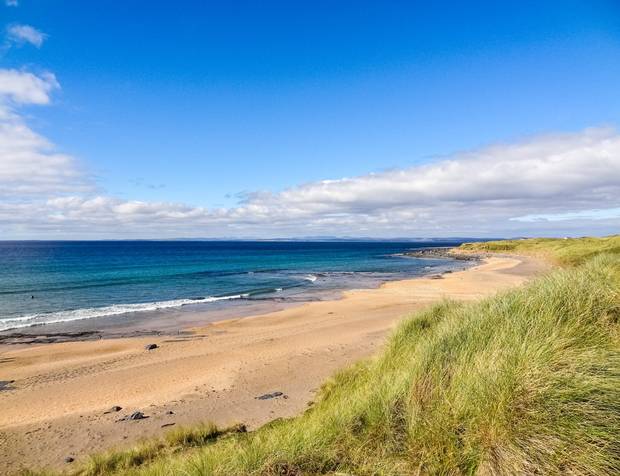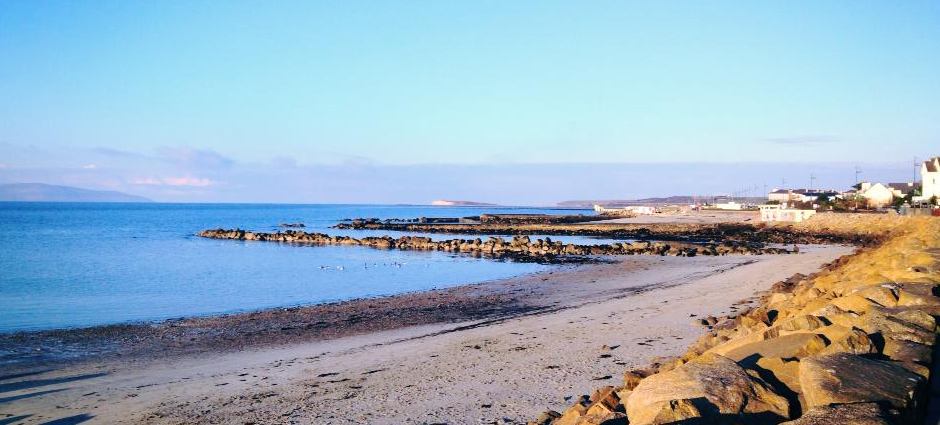What’s the deal with water abstraction?

2 February 2021
Over the past couple of months, you might have heard quite a bit about water abstraction.
So what exactly is it, why is it important, and why are we hearing lots about it?
We wanted to find out – so we called up Dr. Elaine McGoff from An Taisce, who’s a Natural Environment Officer, a Director at Sustainable Water Network, and a freshwater ecologist.
Alright, take it from the top: what exactly is water abstraction?
It’s when someone removes water from rivers, lakes and groundwater.
The extracted water is used for a number of reasons, like for wells, water bottling plants, and data centres who might use it to cool down processors.
Right now, it’s not the most significant pressure on our waters, according to Sustainable Water Network (SWAN), but it does pose a significant risk at a local level to our vulnerable waterbodies.
And it’s also important to note that even small abstractions can have significant impacts on certain sites.
If there are many small abstractions from the same water body, the impacts are only exacerbated.
What kind of risks?
If we overabstract our water, negative impacts arise for both people and wildlife, according to Dr. McGoff.
If too much water is removed from a site, nearby wells start to run low or even run dry. People who depend on these wells for their own use would be seriously impacted as a result.
It also has ramifications for our biodiversity. If water levels fall too low, the water body itself might heat up much quicker, which could lead to fish death and sensitive species, like mayflies and dragonflies, might start to die off.
And don’t forget – we have to put all of those risks against the backdrop of the ongoing climate crisis.
Most climate models find that Ireland will see significant decreases in rainfall during the spring and summers as the planet heats up and we’re already starting to see this impact in real-time.
Our water bodies get quite low as a result, so all the negative consequences of over-abstraction are magnified by climate change.
And what is the state of our water abstraction here in Ireland?
At the moment, we don’t really have a clear picture of how much water abstraction is occurring in Ireland.
Trinity College Dublin-led research for the Environmental Protection Agency in 2017 found that progress on evaluating water abstraction on Irish rivers was, “severely hampered by the lack of an integrated national database of abstraction and discharge”.
The other problem is how we register and licence for water abstraction.
As it stands right now, you need to register your abstraction for anything over 25 cubic metres. But that also means that any abstraction below 25 metres is impossible to track.
If you want to abstract anything northward of 2000 cubic metres, you’ll need to get a licence.
2000 cubic metres sounds like a lot, and it is. To put this in perspective, our licencing threshold is 100 times higher than what is in place in Northern Ireland, England and Wales.
What’s being done about it?
So the reason you might be hearing about this issue again is because the Oireachtas Committee on Housing, Planning and Local Government released a report last week of their pre-legislative scrutiny of the Water Environment (Abstractions) Bill.
The Bill’s first draft was released in 2018 and the Heads of Bill went before the Committee in October 2020.
SWAN went before the Committee to provide evidence, and they raised a number of issues with the Bill.
The network took issue with something called a grandfather clause in the Bill, which said that any abstractions which are already in place cannot be refused a licence.
“So even if you have a really ecologically damaging abstraction, there’s no legal mechanism to refuse that licence in these Heads of Bill as they are, which is hugely problematic,” Dr. McGoff told The Green News.
Another issue SWAN had with the Bill was that there were no means within it to revoke or alter a licence once it’s granted.
Not having this mechanism would allow for abstraction to continue even in the face of a sudden drop in water levels or ecological damage.
The Bill as a whole also failed to comply with the European Union’s Water Framework Directive, Habitats Directive, and Environmental Impact Assessment Directive, SWAN found.
In light of all this testimony, the Committee have officially recommended that abstraction thresholds be brought in line with other jurisdictions like Northern Ireland and Scotland and to remove the controversial aforementioned grandfather clause.
The report also recommended that consideration be given to having a more responsive system, which would allow for flexible licences if water levels run low or ecological impacts are detected.
So all in all, according to Dr. McGoff, “the recommendations are really promising”.
And what comes next?
The Bill will be sent back to the Department of Housing with the Committee’s recommendations to be revised, and then it will go through the different stages of the Oireachtas.
But remember: there’s no legal obligation for the Department to take these recommendations on board, so keep an eye out for what the Bill actually looks like when it comes before the Oireachtas.
[x_author title=”About the Author”]







